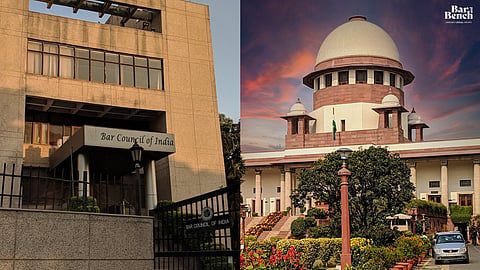BCI and Supreme Court
Litigation News
Plea before Supreme Court against BCI halt on establishment of new law colleges
The plea seeks the replacement of the moratorium with targeted, transparent, and region-specific regulatory measures to address sub-standard institutions while allowing genuine proposals to come forward.
The Supreme Court on Friday sought the response of the Bar Council of India (BCI) to a plea challenging the imposition of a three-year moratorium on the establishment of new law colleges across the country [Jatin Sharma v. Bar Council of India & Ors.].

